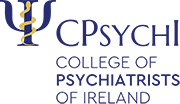Finding a therapist isn’t just about qualifications or availability—it’s about connection. You’re far more likely to benefit from therapy when the person you’re speaking to “gets” you. In Ireland, where mental health awareness is growing and options are increasing, finding a therapist who matches your personality is both more achievable and more overwhelming than ever.
This blog is designed to help you navigate the many choices, understand the systems available, and ultimately feel confident about selecting someone who fits your unique preferences, values, and needs.
1. Why Personality Match Matters in Therapy
Research consistently shows that the strength of the therapeutic relationship—sometimes called the “working alliance”—is one of the most significant factors in whether therapy is effective. That includes shared goals, mutual respect, and personal rapport.
A therapist might be clinically brilliant, but if their style doesn’t suit your communication preferences or emotional needs, it can create a barrier to trust. Finding the right “fit” is essential, and the good news is that there are many ways to do it in Ireland today.
2. Exploring Ireland’s Public Mental Health Services
Ireland’s public system offers several valuable options for mental health support, especially for those on low incomes or with medical cards.
Counselling in Primary Care (CIPC)
CIPC offers short-term therapy for mild-to-moderate mental health issues, such as anxiety, stress, or bereavement. Access is free with a medical card, and referrals are made through your GP. Sessions are usually delivered by accredited therapists, although you typically won’t have a choice in who you see.
HSE Mental Health Services
The HSE provides a broader range of mental health services via community mental health teams and specialist clinics. While these services are generally reserved for moderate to severe mental illness (like psychosis or complex trauma), they are an important part of Ireland’s mental healthcare infrastructure.
Keep in mind: public services often have long waiting lists, and you’re unlikely to be able to select a therapist based on personality, background, or style.
3. Helpful Mental Health Charities in Ireland
Several charitable organisations provide excellent mental health support services in Ireland, often at low or no cost. These charities don’t typically offer long-term therapy, but they can provide valuable short-term interventions and community support.
- Aware – Offers peer groups and resources for individuals experiencing depression and bipolar disorder.
- Jigsaw – Focuses on youth mental health (ages 12–25), offering early intervention and accessible support centres across the country.
- Shine – Provides mental health information and support for individuals and families affected by serious mental illness.
While these services are usually not therapist-matching services, they are excellent first points of contact for emotional support and onward referral.
4. What About AI-Based Mental Health Apps?
If you’re not ready to speak to a human or just want to dip your toe into self-exploration, AI-powered apps can be surprisingly helpful. These apps are designed to simulate therapeutic techniques like CBT (Cognitive Behavioural Therapy) and mindfulness, offering immediate, private support without speaking to a person.
Some AI mental health apps offer:
- Mood tracking and journaling
- Thought-reframing tools
- Guided meditations
- Daily wellbeing check-ins
These tools can be a good first step, but they’re not a replacement for working with a trained therapist—especially if you’re struggling with deeper emotional or relational issues.
5. Asking Your GP for a Recommendation
Your GP can be an excellent resource when looking for a private therapist. They may know of specific practitioners they’ve referred patients to and can make recommendations based on your symptoms or concerns. While GPs aren’t trained psychotherapists themselves, they are often well-informed about local services—particularly trusted clinicians in private practice.
It’s also helpful to be clear with your GP about what kind of therapist you want: for example, someone approachable and warm, or perhaps someone more structured and practical.
6. Therapist Directories: Pros and Cons
Online directories allow you to browse therapists based on location, specialism, and approach. These can be a good starting point because they provide you with a long list of credentialed professionals across the country.
Some directories allow filtering by:
- Modality (CBT, Psychodynamic, Humanistic, etc.)
- Language
- Gender identity
- Session format (in-person vs. online)
- Fee structure
However, directories can also be overwhelming, especially because many lack video introductions or meaningful insights into a therapist’s personality. It’s common to end up scrolling through profiles that all read the same, leaving you unsure about who might actually suit you.
7. A More Personal Way: Private Therapy Clinic’s Therapist Matching Tool
At Private Therapy Clinic, we aim to make finding a therapist as intuitive and transparent as possible. As one of the few multi-practitioner therapy and psychiatry companies in Ireland, we offer a large team of professionals with diverse backgrounds and therapeutic styles.
Use Our Therapist Matching Page
Our Therapist Matching Page allows you to filter therapists by:
- Specialty (e.g., anxiety, trauma, autism, couples therapy)
- Language
- Gender
- Appointment format
- Price range
Watch Practitioner Videos
Each therapist has a short video on their profile page. By watching just 3 seconds, many clients say they immediately get a sense of whether they “click” with someone. It’s a simple vibe check—but it works.
Try a Free 15-Minute Call
Many of our therapists offer a free 15-minute call, which you can easily book through their individual bio pages. This is a chance to ask questions, share a little about your concerns, and see how the therapist responds.
You can also book these free consultations on our Book Online page.
Speak with a Therapist or Assistant Psychologist
Still unsure? No problem. You can speak with one of our therapists or assistant psychologists during a free initial call. They’ll take time to understand what you’re looking for and make a personal recommendation based on your preferences, personality, and goals.
8. Expert Advice from Dr. Becky Spelman
Dr. Becky Spelman, psychologist and founder of Private Therapy Clinic, offers the following practical tip:
“If you have the chance, try booking one session with two different therapists and simply reflect on how you felt after each session. Don’t overthink it—just give yourself a little time and trust your gut instinct. That first feeling of connection can tell you a lot. Then, once you choose who to continue with, give it at least six sessions. That gives the therapist time to move from initial assessment into real therapeutic work. Therapy is a process, and it takes a bit of time to build momentum.”
9. Cost Considerations: Therapy Should Be Accessible
We understand that private therapy can feel out of reach financially. That’s why we offer a range of fee options:
- Trainee Psychotherapists on Placement – These are advanced trainees under the supervision of senior clinicians. They offer competent, compassionate therapy at significantly reduced rates.
- Sliding Scale Fees – If you are unemployed, on low income, or experiencing financial hardship, we may be able to offer further discounts. Don’t hesitate to get in touch and ask—we’ll do what we can to support you.
10. Final Thoughts
Shopping for a therapist can feel daunting. There’s no single “right way” to do it, but there are many good options in Ireland—both public and private. Whether you start with a GP, explore a charity, use an AI app to ease into self-reflection, or dive into private therapy with a personalised match, what matters is that you take the first step.
At Private Therapy Clinic, we try to make that first step as easy as possible—with tools that help you match with someone who really gets you. Because therapy isn’t just about talking—it’s about being seen, heard, and supported by someone who makes you feel safe and understood.















